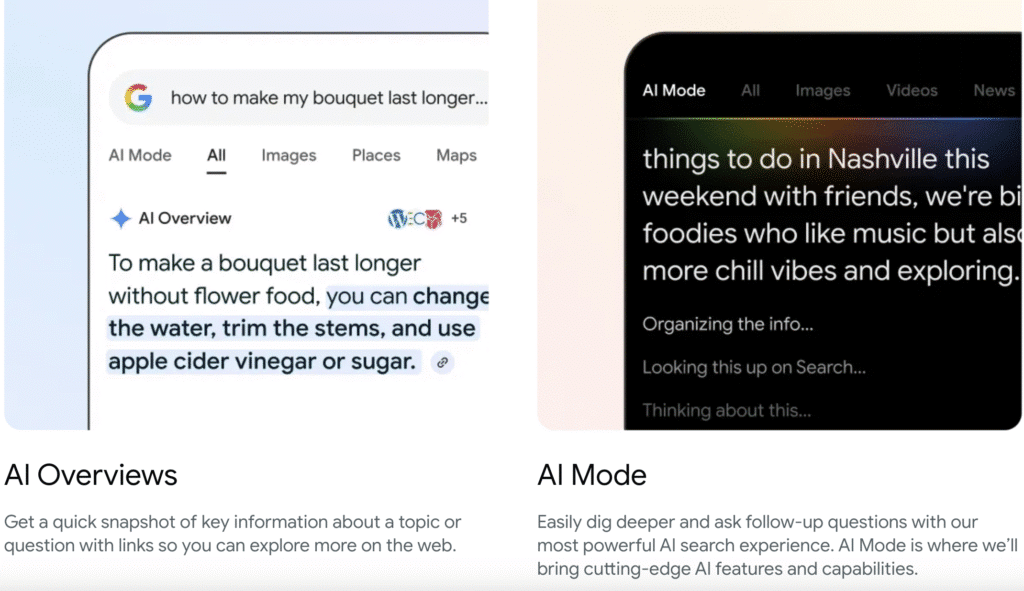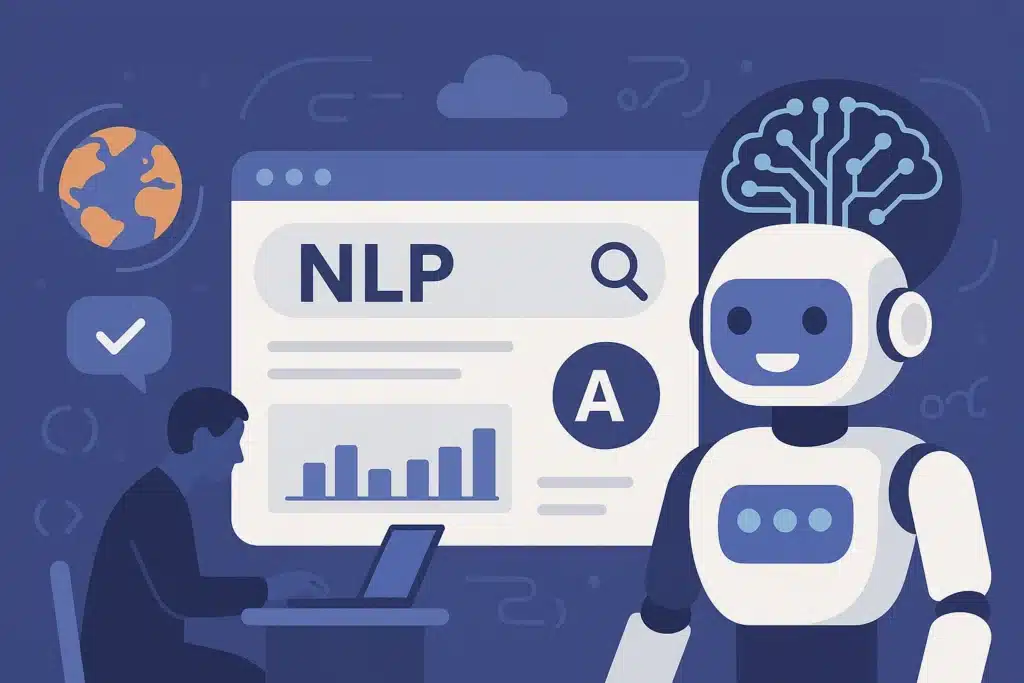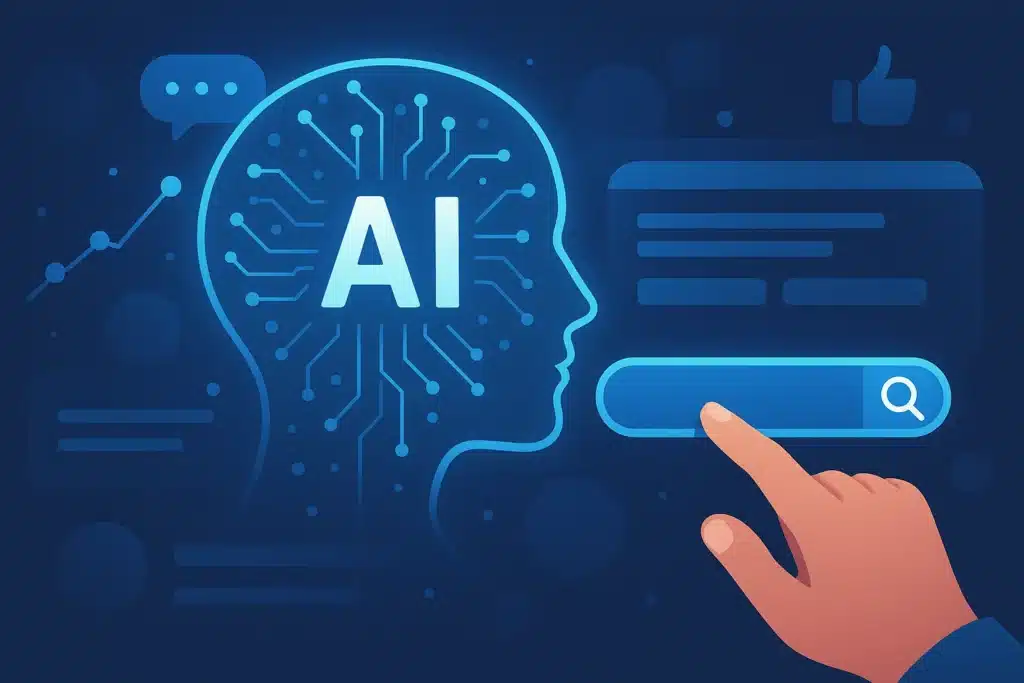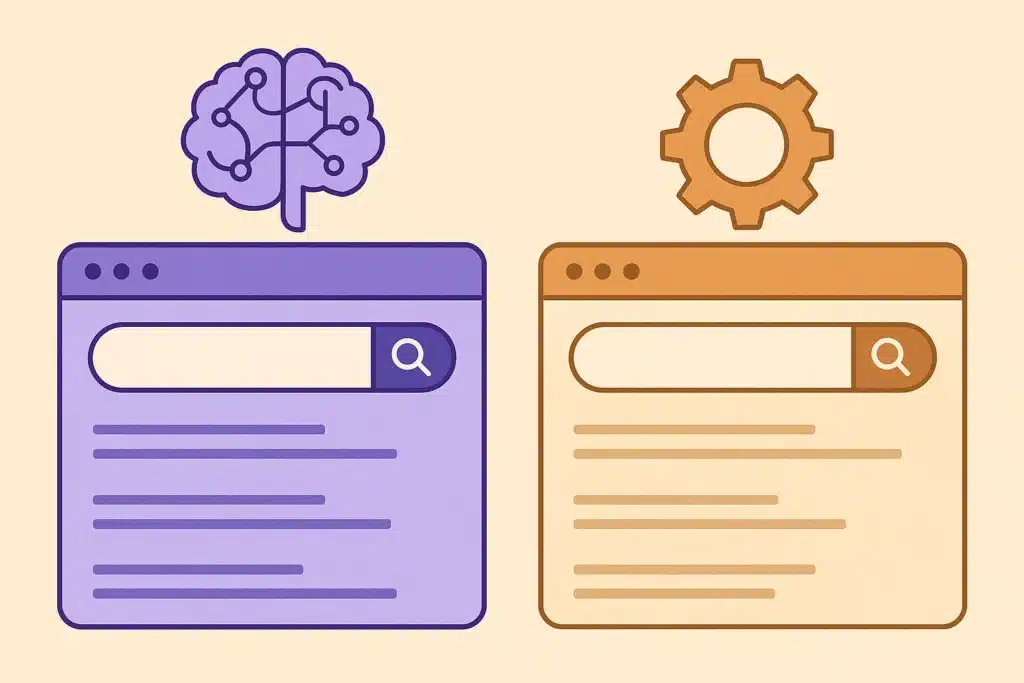AI search plays a transformative role in how information is accessed, processed, and delivered today. Digital platforms increasingly rely on ai-powered search to provide accurate, context-driven results for users, signaling a shift from traditional search methodologies to smarter, more adaptive solutions. The rise of ai searching is making it possible for systems to recognize complex patterns in user queries, allowing them to deliver content that closely matches user intent while also continuously learning from new information.
Understanding the Basics of AI Search Technology
AI searching fundamentally changes how information is located and presented by utilizing advanced algorithms, deep learning, and vast data resources. Unlike static methods, ai search platforms use complex logic to interpret each query and extract meaning far beyond keyword recognition. Machine learning, a core element in ai-powered search, empowers systems to improve from recursive exposure to data and user behaviors, resulting in smarter outcomes over time. As queries grow in complexity, deep search ai can map intent, anticipate related questions, and reduce irrelevant results, learning continuously to suit evolving information needs.

One foundation of ai overview search is its capacity to scan and analyze enormous volumes of unstructured and structured data efficiently. Rather than processing exact keywords, ai search uncovers context, user sentiment, and semantic relationships. This means it understands synonyms, detects implied questions, and adapts its approach to fit various digital platforms and industries. Systems use feedback loops: each interaction becomes an opportunity to refine future results, reduce error rates, and cultivate a more responsive digital environment.
How Natural Language Processing Shapes AI Search
Natural Language Processing (NLP) is at the heart of ai search. This specialized branch of artificial intelligence equips search engines with the ability to deeply understand and interact with human language in a way that traditional search systems cannot achieve. Through advanced NLP, ai-powered search systems analyze not only the words used in a search query but also the overall meaning, sentiment, and context. Rather than relying simply on keywords, NLP-powered ai searching delves deeper by recognizing synonyms, understanding colloquialisms, and detecting the user’s true intent. This shift means users do not need to formulate their questions in rigid or awkward ways, as ai overview search is designed to interpret natural, conversational language with impressive accuracy.

Another important function of NLP within deep search ai is its capability to process complex queries that may contain multiple subjects, modifiers, or ambiguous phrases. The system parses the grammatical structure, identifies relationships between words, and determines priorities based on context cues. For example, if a user searches for “restaurants near me open now with vegetarian options,” ai search powered by NLP will analyze all elements of the request and connect them to give a response that fits every condition.
The inclusion of NLP also enables features such as automatic correction of spelling errors, interpretation of slang, and support for multiple languages. These capabilities ensure ai searching is robust and adaptable, able to adjust to the evolving ways people communicate. As a result, users benefit from a more engaging and intuitive experience, and organizations leveraging deep search ai can more effectively meet the information needs of their audience in real time.
AI Search and User Experience
One of the core advantages of ai search is its ability to create a seamless, intuitive flow during searches. Where traditional search engines may lose context or deliver generic responses, ai-powered search leverages user history, semantic recognition, and behavior learning to refine results dramatically. For instance, if a user frequently searches for technical guides instead of news articles, the system adapts to deliver those types of resources more prominently during future sessions—making interactions more efficient. This not only reduces the number of steps and time needed to find relevant answers, but also helps users feel understood by the technology they use.

The emotional response to a well-designed ai search experience cannot be underestimated. Users who consistently find what they need with minimal effort will return more often, leading to increased engagement and longer site visits. Because deep search ai can analyze subtle cues in language, spelling errors, regional dialects, or even incomplete questions, it accommodates a wider range of user needs. Accessibility improves too, as voice searches or conversational queries are interpreted with advanced natural language understanding, removing barriers for those who may otherwise struggle with text-based interfaces.
Strong ai overview search capabilities also enable brand owners and content managers to provide a consistent user journey, regardless of how complex or niche the queries might be. By investing in advanced ai-powered search, platforms keep pace with rising expectations and evolving search habits, ensuring every user interaction is as meaningful and effective as possible.
Comparing AI Search to Traditional Search Engines
There are clear differences between ai search and conventional search engines. Traditional search technologies typically analyze a user’s query by breaking it down into individual keywords and then searching for those exact or similar words in their indexed content. This process largely ignores the context and semantics behind the query, which can result in listings that are broadly relevant but sometimes miss the deeper intent of the user.

AI search stands apart by harnessing the power of machine learning models, neural networks, and continuous data analysis. AI-powered search platforms examine queries using advanced algorithms capable of understanding intent, sentiment, and contextual relationships between words. This means that even if a user phrases a question unusually or with colloquial language, ai searching tools can decode the meaning behind it, returning more precise results.
Ai overview search offers another significant advantage by evaluating vast data streams and continuously improving based on feedback signals. Each interaction helps the system learn and adapt, creating a feedback loop for optimization. With traditional search engines, updates are generally less frequent and less responsive to user behavior. As more people use ai search, algorithms become better at predicting what information is truly relevant, meaning that results are typically fresher and more closely calibrated to actual needs.
Challenges and Limitations of AI Search Today
Despite rapid advances, ai search faces obstacles. One common issue is the presence of biases in datasets that are used for training AI models. If the data used does not reflect diverse perspectives or up-to-date information, the system’s answers can be limited or skewed. This makes maintaining fairness and inclusivity within ai search tools an ongoing challenge for developers and organizations.
Another significant limitation revolves around continuous adaptation. Ai searching systems must constantly learn from new data to keep up with changing language patterns, trends, and user behaviors. However, this process requires extensive resources and ongoing updates. For smaller platforms or businesses without regular data updates, keeping ai overview search relevant may not always be feasible.
Furthermore, ai searching tools generally require significant computational resources, which can limit their accessibility or slow their responses in environments with less technological infrastructure. All these elements highlight the multi-faceted nature of the challenges related to ai search and underline the importance of continual innovation and monitoring within this important technology.
Future Trends Driving Innovation in AI Search
The future of ai search is unfolding rapidly, driven by ongoing breakthroughs that put advanced intelligence at the center of digital discovery. One of the most significant developments is multimodal ai searching, where systems process not just text, but also images, video, and even audio. This empowers users to search in the way that feels most natural to them, whether by uploading a photo, speaking a query, or typing a question.
Contextual enhancements are also pushing ai-powered search into new territory. Future systems will not just match queries to data; they will interpret subtle meaning, remember conversational history, and refine answers as more information becomes available. This means that deep search ai can deliver search results that evolve in real time during interactive sessions, resulting in a more human-like search process. Voice assistants and chatbots benefit from these advancements, providing users with smoother, more continuous conversations that make accessing information as easy as having a dialogue.
Another direction is the seamless embedding of ai overview search into everyday workflows. Instead of navigating to a separate search tool, users will access intelligent search features directly within the applications, productivity suites, and devices they already use. The expansion of these embedded search capabilities will make it possible to retrieve precise answers, summaries, and even predictions, all without leaving the task at hand. Real-time learning and adaptation ensure that the ai search engine keeps pace with shifting trends, user preferences, and language.
Advanced data mapping and personalization are also gaining traction, making it possible for ai searching tools to understand individual behaviors, interests, and contexts with greater depth. The future will likely feature ai search platforms that can anticipate needs, proactively surface relevant content, and support users with decision-making based on comprehensive, real-time insights. As research continues and infrastructure improves, these trends will collectively redefine how people interact with information, making ai-powered search an essential part of daily digital life.
Measuring the Impact of AI Search on Digital Success
The integration of ai search into digital platforms has marked a shift in how organizations achieve and measure online success. Today, companies and content creators rely on ai-powered search capabilities to unlock greater value from their websites and digital services. This technology does more than just retrieve information; it fundamentally shapes user journeys, helping brands capture and retain their audiences in highly competitive digital environments.
One of the primary advantages provided by ai overview search is its ability to deliver relevant results based on user intent rather than solely on exact keywords. This means users spend less time searching and more time engaging with content that interests them. Faster and more accurate responses lead to increased satisfaction rates, which subsequently improve metrics such as dwell time, lower bounce rates, and higher conversion rates.
An additional benefit of deep search ai lies in customization. Modern users expect digital environments that respond to their individual needs. With ai-powered search, companies can tailor product recommendations, on-site resources, and service assists in ways that traditional search solutions cannot replicate. This improves conversion rates as customers find what they need quickly, and companies can identify trends to fine-tune offerings.
Success in the digital landscape also depends on data-driven optimization. With the data and trend analysis made possible by ai overview search, brands can learn which topics or products generate the most interest. They gain perspectives on how users interact with their platforms and where improvements are necessary. These insights allow them to adjust SEO strategies, refine ad targeting, and develop content that resonates with specific audiences.
Ultimately, brands adopting deep search ai often find themselves better positioned in search rankings, benefiting from enhanced site navigation and user-friendly experiences. For those seeking to monitor their success and make informed adjustments, solutions such as the serp tool provide valuable analytical support, giving digital managers the information they need to stay competitive and responsive to user needs.
Ongoing advances in ai search are shaping the trajectory of digital innovation. The increased precision and personalization made possible by ai-powered search directly impact how businesses track progress and maintain their edge in a rapidly evolving online landscape. As artificial intelligence continues to grow in capability, the impact on digital strategy and measurable outcomes will only deepen and expand in the coming years.
